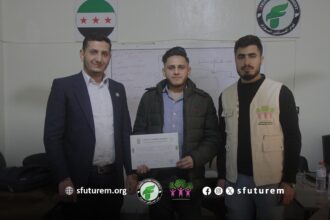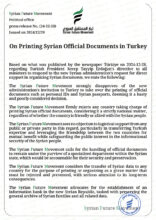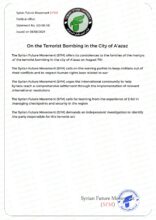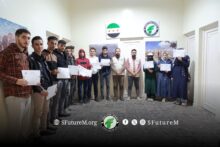8 years after the Russian intervention in Syria, what’s the stance?

Introduction:
On the dawn of September 30, 2015, Russian missiles officially began targeting the head of the Syrian opposition. In the eight years that followed, the Syrian map changed, pushing the opposition away from military victory and the Syrian regime began reclaiming previously liberated territories. Within a single year, the Syrian regime recaptured the historic city of Palmyra and significant parts of the Latakia countryside, all previously under opposition control. Additionally, areas of Qalamoun were retaken thanks to Russian support. Later, series of withdrawals occurred from strategic opposition areas, and Zahran Alloush was assassinated in the last month of 2015, paving the way for the evacuation agreement of Ghouta in 2018.
The Syrian Opposition Before the Russian Intervention:
The Syrian National Council, led by Mr. Burhan Ghalioun, attempted to penetrate the Russian door but failed. However, the obstacle wasn’t the Syrian opposition, despite some responsibility, but the West. The West refused to let the Syrian opposition be a reason for granting Russia the honor of negotiations. The Syrian opposition wasn’t fundamentally against Russia, despite their use of the veto at the UN and their international stance as a guarantor for the Syrian regime. Before the Syrian revolution, the Syrian regime was leaning towards the West, and overlooked Russia’s declining position, even refusing several visits proposed by Putin and strategic relations. It’s said that Assad neglected the Russians at the time, causing Putin some resentment, which he expressed to Bandar bin Sultan.
Reasons for Russia’s Direct Intervention in Syria:
There are many reasons that prompted Putin’s intervention in Syria, but the main ones include:
1- Trimming the influence of regional countries “Turkey and Saudi Arabia” in their expansion in Syria.
2- The vacuum created by the Western neglect of Syria, both American and European.
3- Putin’s response to diplomatic and political isolation by the West.
4- Using support for the Syrian regime as a means to assert itself and step up as a global superpower, particularly in the Middle East.
5- Signing long-term agreements with the regime.
6- Russia felt that Iran’s expansion in Syria would mean Iran taking all of the regime’s advantages, which forced them to intervene and trim Iran’s influence, using Israel’s fear of Iranian militias expanding southward; thus, one of the major reasons for Russian intervention is to focus on Iran and marginalize its political role in Syria.
The Opposition After the Russian Intervention:
The Russians are known for their patience and slowness in decision-making. However, military intervention in Syria was practically in July 2015. Russia began transporting Russian military supply ships and giant “Ilyushin” and “Antonov” transport planes to Syrian ports and airports, establishing the “Hmeimim” base about 20 km south of Latakia. After completing the base and concluding a meeting between Putin and Barack Obama at the UN General Assembly in New York, Russia began its overt and direct intervention on September 30, 2025. This intervention surprised everyone as Russia seemed flexible about the Syrian file and accepting Assad’s departure, and even promoted a Syrian-Syrian meeting on its territory as a preliminary phase for the Geneva3 conference.
Today…
After the Ukrainian war, Russian aggressiveness, their threat to Western interests by cutting gas supplies, destabilizing neighboring countries’ borders, and threatening NATO, the Russians are now on a different path. In Syria, the strong relationship between the Russians and the Turks, especially after the failed coup in Turkey and Turkey’s strategic repositioning closer to the Russians to balance its geopolitics, is evident. This relationship founded the Sochi conference, the de-escalation zones, and other political moves, the latest of which was a quadripartite meeting between the Russians, Turks, Iranians, and the Syrian regime. This new composition leads to the following:
1- The tense relationship between the Russians and the West makes getting closer to the Russians a risk, calling for international alignment among the superpowers in a small country like Syria.
2- The Russian-Turkish relationship makes enmity with the Russians by the opposition a threat to the relationship with Turkey.
3- The dispute in the Russian Security Council regarding Bashar al-Assad has ended, agreeing on his current necessity and supporting him.
Conclusion and Recommendation:
It can be said that “Russia’s stature and its ambitions to reclaim its role in the region are at stake. The fall of the Syrian regime will undoubtedly lead to the United States advancing into areas which Russia perceives as a threat to its national security, which means weakening its role”, especially after the ongoing war in Ukraine and the announcement of the India-Europe route that excludes Russia. This prompted Russia to request China to reinitiate and activate the Silk Road and to invite Assad to China as a message against bypassing the Russians. Consequently, this accentuated Russia’s need to preserve Assad and his regime, at least for the time being.
In light of the above, we in the “Syrian Future Stream” recommend the following:
- Freeze any movement towards Russia and turn towards the West, especially the USA and Britain, and the European Union in the next phase. Currently, Russia will not allow any healthy relationship with the opposition, especially as it sees its relationship with Turkey as sufficient.
- Work on stabilizing regions outside the control of the regime and reconstructing them, either according to the “Forbidden Land” proposal, which draws from the experience of West German unification, or by maintaining the current entities, rectifying and democratizing them, and working on their governance. This could be a foundation for the establishment of the remaining prosperous Syria, leaving the Russians to drown in the quagmire of Captagon and Iranian militias and pay the price for their support to Assad in front of the international community and not in front of the Syrians.






